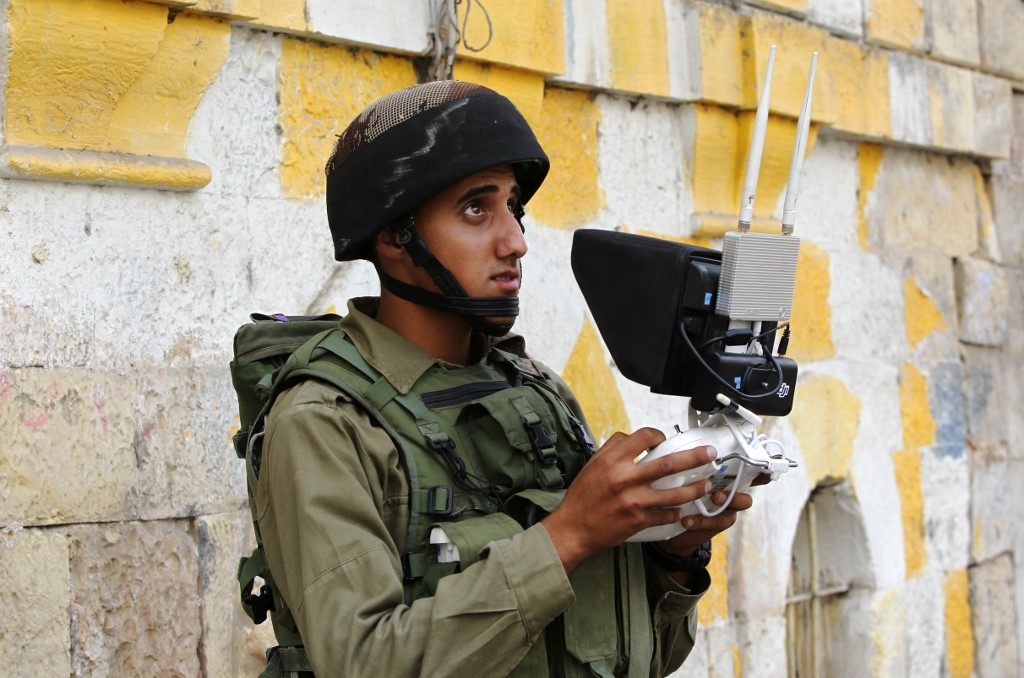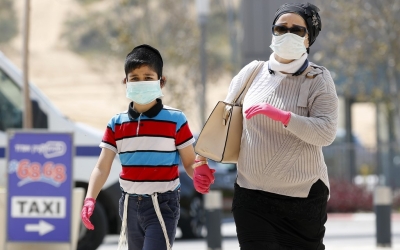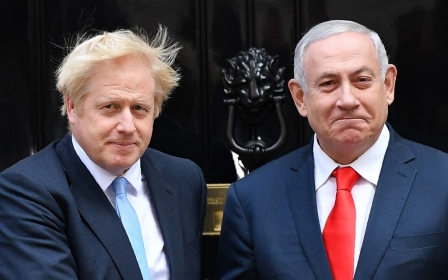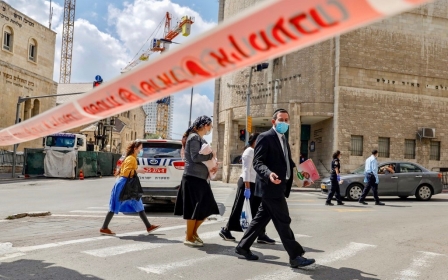Surveillance in Israel: Tool to fight Covid-19 or to infringe on privacy rights?

For years, Israel has been using cyber-surveillance technology to track and monitor the movements of Palestinians in the occupied territories.
But since the coronavirus pandemic began sweeping the world, Israel has used the sophisticated counterterrorism tools to surveil its own citizens.
Even before Israel recorded its first death from Covid-19 on 20 March, Israeli Prime Minister Benjamin Netanyahu asked the Knesset intelligence committee to approve the use of a secret national database compiled by the Shin Bet, its domestic security service, to monitor every Israeli citizen it suspected of contracting the virus.
While Israeli intelligence had developed the tools as a supposed counterterrorism measure, experts say that their use on its own citizens has ignited a new conversation on privacy rights.
"What is novel about the situation indeed... is that the Israeli government is using these tools on its own population," Marwa Fatafta, the policy manager at the rights group Access Now, said during an event hosted by the Foundation for Middle East Peace on Friday.
"There are lots of question marks about what these tools mean for our freedoms to privacy and expression."
According to Israeli reports, Shin Bet, an organisation with no public transparency requirements, can retroactively track the movements of those found to be carriers of the coronavirus in order to see those they interacted with in the days and weeks before they were tested, in order to place those people in quarantine.
While the organisation has said the tools would only be used for the purposes of fighting the pandemic, Fatafta said they were being used with a lack of transparency, little oversight and go far beyond the monitoring efforts of other countries.
Palestinians used as test subjects
According to privacy experts, Israel's powerful mass surveillance programme, which heavily relies on huge amounts of data gleaned from mobile phones and other digital tools, has been violating the rights of Palestinians in the occupied territories for years.
Recently, Israel advised Palestinians who needed to verify whether their permits to remain in Israel were valid to download an app that enables the military access to their mobile phones.
This is the thing that really worries me at this stage, what is going to happen to democracy the day after?
- Sharon Abraham-Weiss, attorney at Association for Civil Rights in Israel
The app, known as "The Coordinator," allows the army to track the user's phone location, access its camera, and access any notifications they receive or files they download or save.
The application "sounds logical on one hand if you don't know the reality, but obviously it means that you download a small spy on your mobile phone," said Nadim Nashif, executive director of 7amleh, a digital rights group.
"Someone that will take different information from your side. Something that will again violate your privacy and your digital rights."
He said social media monitoring, facial recognition cameras at Israeli checkpoints and predictive policing have also been used to monitor and surveil Palestinians.
Fine line between legitimate surveillance and right to privacy
So far, Israel has reported more than 12,500 confirmed cases of the coronavirus, including 130 deaths.
The country issued hardline measures to combat the spread of the novel virus, including issuing an emergency decree that barred Israel from exporting equipment needed to deal with the pandemic.
Netanyahu says these rules, including the surveillance measures, are necessary to help mitigate the viral outbreak.
Still, Sharon Abraham-Weiss, an attorney who leads the Association for Civil Rights in Israel, said that the emergency surveillance measures raise concerns for the "fragile democracy".
"Do we say forget our democracy and let's do everything to stop it?" Abraham-Weiss said.
"This is the thing that really worries me at this stage; what is going to happen to democracy the day after?"
Fatafta said that while the current pandemic merits extraordinary measures for the Israeli government's part, she noted there is a fine line between protecting citizens and infringing on their rights.
"Crises like the current pandemic evoke a lot of fear among the people, and governments often use that fear to justify such extraordinary measures that violate or abuse people's fundamental rights, like their right to privacy," she said.
Middle East Eye delivers independent and unrivalled coverage and analysis of the Middle East, North Africa and beyond. To learn more about republishing this content and the associated fees, please fill out this form. More about MEE can be found here.





